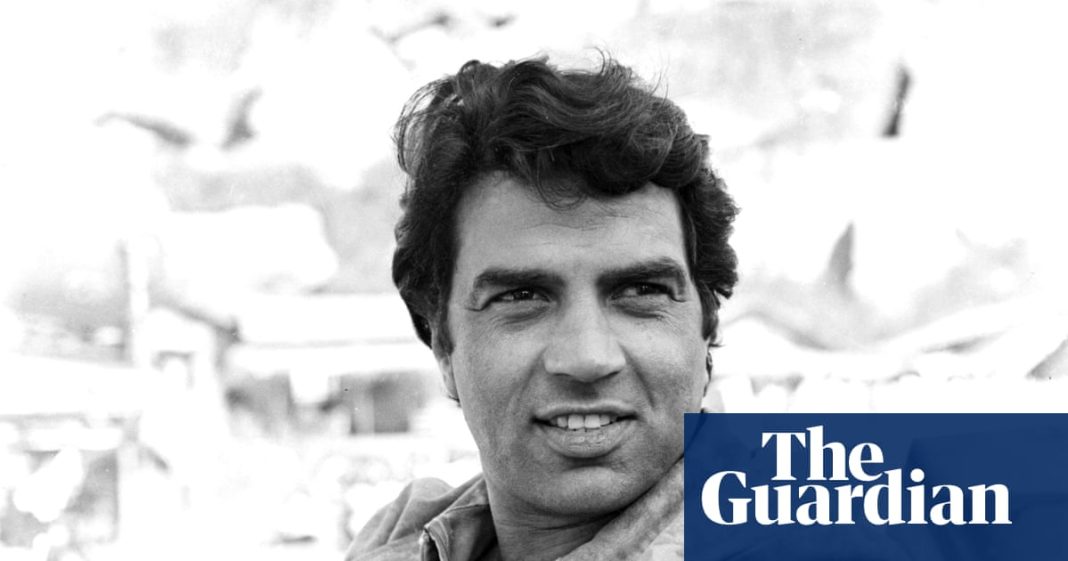The golden era of Indian cinema dims slightly today as Bollywood mourns the passing of one of its most legendary figures, Dharmendra. The iconic actor, often hailed as the ‘He Man’ of Hindi cinema, breathed his last at the age of 89, leaving behind an unparalleled legacy spanning over six decades. His demise marks the end of an extraordinary chapter in Indian entertainment, one filled with charisma, powerful performances, and an enduring connection with millions of fans across generations. Dharmendra’s journey from a humble village in Punjab to the glittering heights of Stardom is a testament to his talent, perseverance, and sheer magnetism.
A Cinematic Journey Spanning Decades
Born Dharmendra Singh Deol in Sahnewal, Punjab, in 1935, his entry into Bollywood was fueled by an unwavering passion for acting. He made his debut in 1960 with Dil Bhi Tera Hum Bhi Tere, and while initial years presented a struggle, his rugged good looks and intense screen presence quickly caught the industry’s eye. It wasn’t long before Dharmendra carved a niche for himself, evolving into a versatile actor capable of delivering compelling performances across genres.
He effortlessly transitioned from intense romantic roles in films like Anupama (1966) and Satyakam (1969) to the quintessential action hero in blockbusters such as Phool Aur Patthar (1966), which cemented his ‘He Man’ image. His ability to blend vulnerability with raw power made him unique. The 1970s saw him star in some of Indian cinema’s most memorable films, including the timeless classic Sholay (1975), where his portrayal of Veeru remains etched in cinematic history. His comedic timing in films like Chupke Chupke (1975) also showcased a range that few actors could match.
Veteran film critic, Rajeev Masand, once remarked, “Dharmendra wasn’t just an actor; he was an emotion. He brought a raw, unpretentious charm to the screen that endeared him to everyone. His appeal cut across all demographics, making him a true superstar who consistently reinvented himself.” His filmography boasts over 300 films, a staggering number that underscores his prolific career and unwavering commitment to his craft.
Beyond the Silver Screen: A Multifaceted Persona
Dharmendra’s influence extended far beyond the silver screen. In 2004, he successfully ventured into politics, getting elected as a Member of Parliament (MP) to the Lok Sabha from Bikaner, Rajasthan, representing the Bharatiya Janata Party (BJP). During his tenure, he continued to engage with the public, demonstrating his dedication to serving the nation. Despite his political commitments, his heart always remained with cinema, and he continued to make sporadic appearances in films, often alongside his sons, Sunny and Bobby Deol, further cementing the family’s cinematic legacy.
His personal life, marked by his marriage to fellow superstar Hema Malini, created one of Bollywood’s most iconic power couples. Together, they navigated the challenges and triumphs of public life, raising a family that continued his artistic lineage. The Deol family remains a prominent force in Indian cinema, a testament to the foundation laid by Dharmendra. His humble beginnings from a small-town boy to a national icon resonated deeply with the common man, solidifying his status not just as a star, but as a relatable figure who achieved extraordinary success through hard work and passion.
In his later years, Dharmendra continued to captivate audiences with guest appearances, reality show stints, and a warm, grandfatherly presence that still carried the spark of his youth. His endearing nature and candid interviews further cemented his place as a beloved elder statesman of Indian cinema, forever cherished for his contributions and his unique brand of stardom.
Dharmendra’s passing leaves an irreplaceable void in the heart of Indian cinema. He was more than an actor; he was a cultural phenomenon whose work reflected the changing tides of Indian society and entertainment. His legacy of versatility, magnetic screen presence, and a career marked by relentless dedication will continue to inspire generations of aspiring actors and filmmakers. The ‘He Man’ may have departed, but the light of his cinematic brilliance will shine on forever, a guiding star in the annals of Bollywood history.




